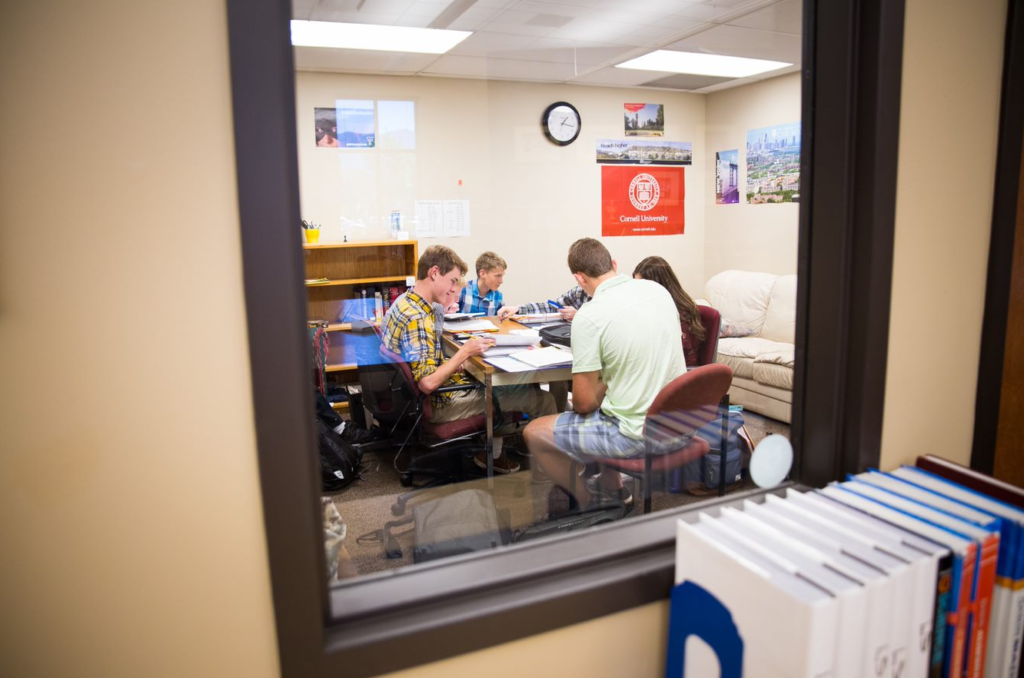 Standardized tests, especially the SAT, continue to be an important part of the college search process. Many universities include SAT scores as part of their entrance requirements and even those that don’t often use them to determine the range of academic scholarships you will receive.
Standardized tests, especially the SAT, continue to be an important part of the college search process. Many universities include SAT scores as part of their entrance requirements and even those that don’t often use them to determine the range of academic scholarships you will receive.
Fortunately, preparing for it is not nearly as daunting as it may seem. As with any major test, you need to know what to expect. With a better idea of the scope of the SAT, you can build your timeline and schedule time to prepare for testing day.
When Should High School Students Take the SAT?
The SAT typically happens seven times in an academic year: March, May, June, August, October, November, and December. Testing times are usually offered on Saturdays. The College Board, which administers the test, has announced that March 12, May 7, and June 4 will be the last testing days in this academic year.
SAT experts typically recommend that students take the test twice:
- The spring of their junior year in high school.
- The fall of their senior year in high school, before college application deadlines.
Research shows that students who take the SAT twice tend to improve their scores, however, there is no limit to how often you take the test and you can take it at any point in your high school career. If you feel the need to take it more than twice, all it takes is an extra registration.
The Vanguard School offers a no-charge SAT Test day to all junior and senior students, but students may also register for the test outside of our scheduled test day.
How Long Does It Take to Prep for the SAT?
Most students take about two to three months to practice for the SAT. On that timeline, carve out one to three hours each week specifically for SAT practice, and take at least one practice test a month to track your progress and find areas that you need to improve.
To stick to that plan, it helps to build a study schedule. Start with a baseline test to benchmark yourself and understand where you should focus most of your early studies. Then, set aside a specific time each week to focus on these studies, ensuring that other priorities in your life don’t overtake the need to continue studying.
Of course, you can also take more than three months to study. With the right research, you’ll find effective six month study plans that can be more focused if you still need to improve significantly on some areas or simply don’t have the time to prepare for multiple hours each week. The most intensive plans aim to ensure that there are no surprises come test time.
What Can I Expect On SAT Test Day?
The test itself consists of four subject areas: reading, writing and language, math, and an optional essay. Let’s break each of them down for a better understanding of what you can expect:
- Reading: You will have 65 minutes to complete the first section. The basic concept is simple: read five passages of content taken from literature, history, and other sources, and answer 52 multiple choice questions about them. You might be asked to identify context or author intent or compare two passages against each other.
- Writing and Language: The time allowed for this section is 35 minutes. That’s the time you have to answer 44 multiple choice questions, which focus on grammar, punctuation, sentence structure, and other pieces related to making sure you know how to write just right.
- Math: You will have a total of 80 minutes on the math portion of the test – 25 minutes to answer non-calculator questions, and 55 minutes for 38 questions in which you can use a calculator. You’ll be asked to analyze data, solve basic algebra equations, and perform basic trigonometry to ace this section.
- Optional Essay: You will have 50 minutes to write an essay on a pre-selected topic. While this section is optional, many universities require a score for your essay, so be sure to check before taking the test – or complete the essay just in case.
In between all the above times, you’ll have two breaks during which you are allowed to eat and drink: one 10-minute break and an additional 5-minute break. You will not be allowed to bring your test book, answer sheet, or calculator on your breaks.
Where Should I Turn for Help in SAT Prep?
Even though the SAT can be scary, the good news is that you’re not on your own. Almost all high school students take the SAT, which means there are plenty of resources available for you to take advantage of.
Khan Academy is home to the official preparation program for the SAT, approved by The College Board. But other reputable sources, from Kaplan Education to the Princeton Review, all have their own SAT prep systems. Check your options, compare pricing, and find a solution that matches your pace and preferred learning style.
And of course, our College Counseling Office will help as well. Our College Counselors schedule SAT prep courses for all of our students in preparation for SAT Test Day each year. Additional tutoring is also available for students who would like to prepare outside of these scheduled courses. Contact us at [email protected] to ask about help and information related to all common standardized tests, from the SAT to American College Test (ACT), the Preliminary Scholastic Aptitude Test (PSAT), and the National Merit Scholarship Qualification Test (NMSQT). Our college counselors work hard to help our students succeed, from the freshman year to college.
